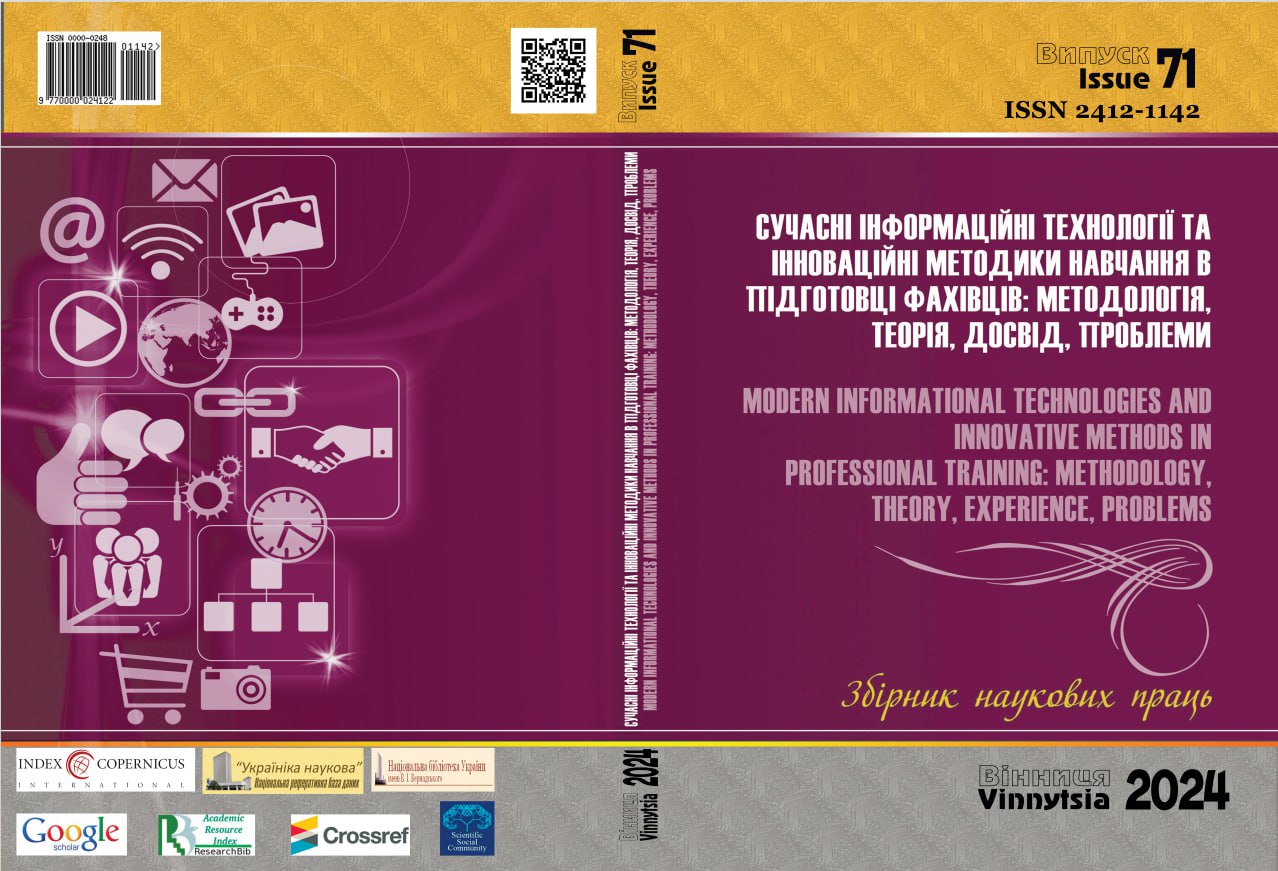FOREIGN LANGUAGE TEACHING IN A HIGHER TECHNICAL EDUCATIONAL INSTITUTION: MODULE ORGANIZATION
DOI:
https://doi.org/10.31652/Keywords:
modular learning; instructional content units; individualization; cognitive activity; foreign language teaching; higher technical educationAbstract
This article aims to explore the perspectives of utilizing a modular system in English language learning at a technical university, including its benefits, challenges, and potential outcomes.The article explores the concept of modular learning and its effectiveness in the educational process. The modular approach, which emerged as an alternative to traditional approaches, aims to individualize learning and activate students' cognitive skills. Different definitions of module learning are discussed, highlighting its role as an instructional package or a closed autonomous unit. The essence of modular learning in teaching foreign languages is described as independent or self-directed learning, where students work with individual educational programs. The main goals and principles of modular learning are outlined, emphasizing modularity, structuring content, dynamism, reality-based methods, flexibility, perspective awareness, diverse methodological guidance, and parity. The implementation of the modular approach in teaching foreign languages in higher technical educational institutions is discussed in relation to the goals of language teaching in such institutions. In addition to the thematic modules, the importance of the modules sequencing in the curriculum is considered in the line of significant impact on the effectiveness of learning. The guiding and supporting role of the teacher as a facilitator in creating a learning environment that encourages active students’ engagement and critical thinking is another key aspect of modular learning studied in the article. Traditional and alternative forms of students' understanding and application of knowledge assessment as an integral part of evaluating modular learning are discussed. The numerous benefits, challenges and the potential outcomes of a modular system implementation in English language learning at a technical university are offered. The perspectives of utilizing a modular system in English language learning at a technical university are clarified. Overall, it is concluded that modular learning offers a flexible and personalized approach to education.
Downloads
References
Postlethwait S.N. and Russell J.D. Minicourses. The Style of the Future? The Use of Modules in College Biology Teaching. Washington. Commission on Undergraduate Education in the Biological Sciences. 1971. P. 19-28. (in English).
Russell J.D. Modular Instruction. A Guide to the Design, Selection, Utilization and Evaluation of Modular Materials. Minneapolis, Minnesota: Burgess Publishing Company. 1974. 164 p. (in English)
Goldschmid B., Goldschmid M.L. Modular Instruction in Higher Education: a Review in Higher Education. No.2. 1972. P. 15-32. (in English).
Deci E., Ryan R. Intrinsic and Extrinsic Motivations: Classic Definitions and New Directions. Contemporary Educational Psychology. 2000. No. 25. Pp. 54–67. (in English).
Yutsavichene P.A. Theory and practice of modular learning. Kaunas, Schwiss, 1990. 271s. (in English).
Tarnopolsky O.B., Kabanova M.R. Methodology of Teaching Foreign Languages and Its Aspects in Higher Education: textbook. Dnipro: Alfred Nobel University, 2019. 256 p. (in Ukrainian).
Concept of English Language Development in Universities. Ministry of Education and Science of Ukraine. 2019. URL: http://surl.li/arvso (accessed September 15, 2023). (in Ukrainian).
Strategy for the Development of Higher Education in Ukraine for 2021-2031. Ministry of Education and Science of Ukraine. Kyiv, 2020. 71 p.Nurhidayah R. The role of motivation in second language acquisition. Jurnal Ilmiah Spectral. Vol 6, No. 2 (2020) pp. 96–104. (in Ukrainian).
Nurhidayah R. The role of motivation in second language acquisition. Jurnal Ilmiah Spectral. Vol 6, No. 2 (2020) pp. 96–104. (in English).
Downloads
Published
Issue
Section
License
Copyright (c) 2024 Дзівідзінська Ірина Сергіївна

This work is licensed under a Creative Commons Attribution 4.0 International License.





